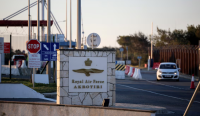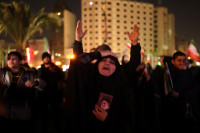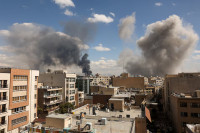World
Explainer: What is ‘Taiwan independence’ and is Taiwan already independent?
Some questions and answers about what is meant by the term “Taiwan independence”.
Reuters
The US State Department’s Taiwan page last week removed a previous reference to not supporting Taiwan’s independence.
Below are some questions and answers about what is meant by the term “Taiwan independence”:
What is Taiwan’s history and formal name today?
Previously known as Formosa, the island has been home to indigenous people for thousands of years, before the Dutch and Spanish briefly ruled parts of it in the 1600s.
The Qing dynasty incorporated Taiwan as part of Fujian province in 1684 and only declared it a separate Chinese province in 1885.
Following the Qing’s defeat in a war with Japan, it became a Japanese colony in 1895. In 1945, it was handed over to the Republic of China government at the end of World War Two.
In 1949 after being defeated by Mao Zedong’s communist forces, the Republic of China government fled and moved its capital to Taiwan, and Republic of China remains the island’s formal name. Mao set up the People’s Republic of China, and claimed it was the only legitimate Chinese government for the whole of China, including Taiwan, as the Republic of China’s successor state.
What is Taiwan’s international status?
For decades, the Republic of China in Taipei also claimed to be the legitimate Chinese government, but in 1971 it was expelled from the United Nations in favour of the Beijing government. Currently only 12 countries maintain formal ties with Taipei, mostly small and poorer developing nations such as Belize and Tuvalu.
Most major Western countries and US allies maintain close unofficial ties with Taiwan by recognising the Republic of China passport and having de facto embassies in each other’s capitals. Taiwanese citizens can freely travel to most countries using its passport.
The US severed official ties with Taipei in 1979 but is bound by law to provide the island with the means to defend itself. The US officially takes no position on Taiwan’s sovereignty under Washington’s “One China” policy.
China says it will not renounce the use of force to bring Taiwan under its control. Beijing has offered Taiwan a “one country, two systems” model similar to Hong Kong, which promised the city a high degree of autonomy, though no major political party in Taiwan supports that.
Opinion polls in Taiwan have repeatedly shown most Taiwanese wish to maintain the current status quo in relations with China.
China also says that United Nations resolution 2758, passed in 1971 which stated that the People’s Republic of China is the only legitimate government of China and which resulted in Taipei losing China’s U.N. seat to Beijing, means that legally the world recognises Taiwan belongs to China.
The government in Taipei says that is nonsense given the resolution made no mention of Taiwan or its status.
Is Taiwan already an independent country?
Taiwan, whose people elect their own leaders and whose government controls a defined area of territory with its own military, passport and currency, enjoys de facto independence even if that is not formally recognised by most countries.
Taiwan’s government says the Republic of China is a sovereign state and that Beijing has no right to speak for or represent it given the People’s Republic of China has no say in how it chooses its leaders and has never ruled Taiwan.
Could Taipei declare a “Republic of Taiwan”?
It would be very difficult and require parliamentary approval of a constitutional amendment and then a referendum, rather than a simple declaration by President Lai Ching-te.
At least 75% of lawmakers would need to pass that amendment, and the ruling Democratic Progressive Party (DPP) and main opposition party the Kuomintang (KMT) currently have an equal number of seats.
The DPP, which has been in power since 2016, has not made an attempt to change the constitution. The KMT strongly opposes any attempts to change the name of Republic of China.
What does Taiwan’s president say about independence?
China detests Lai and calls him a “separatist”. Before Lai was elected president he made comments about being a “practical worker for Taiwan independence”. Lai maintains he simply meant Taiwan is already an independent country.
Since taking office in 2024, Lai has said on several occasions that the Republic of China and People’s Republic of China are “not subordinate to each other”, which Beijing says means he believes the two are separate countries and so he is therefore pushing an independence narrative.
Does China have a legal framework to prevent formal independence?
In 2005, China’s largely rubber-stamp parliament passed the Anti-Secession Law that gives the country the legal basis for military action against Taiwan if it secedes or if the “possibilities for a peaceful reunification should be completely exhausted”, but the law is vague and does not give details.




 9.7°C Kathmandu
9.7°C Kathmandu














